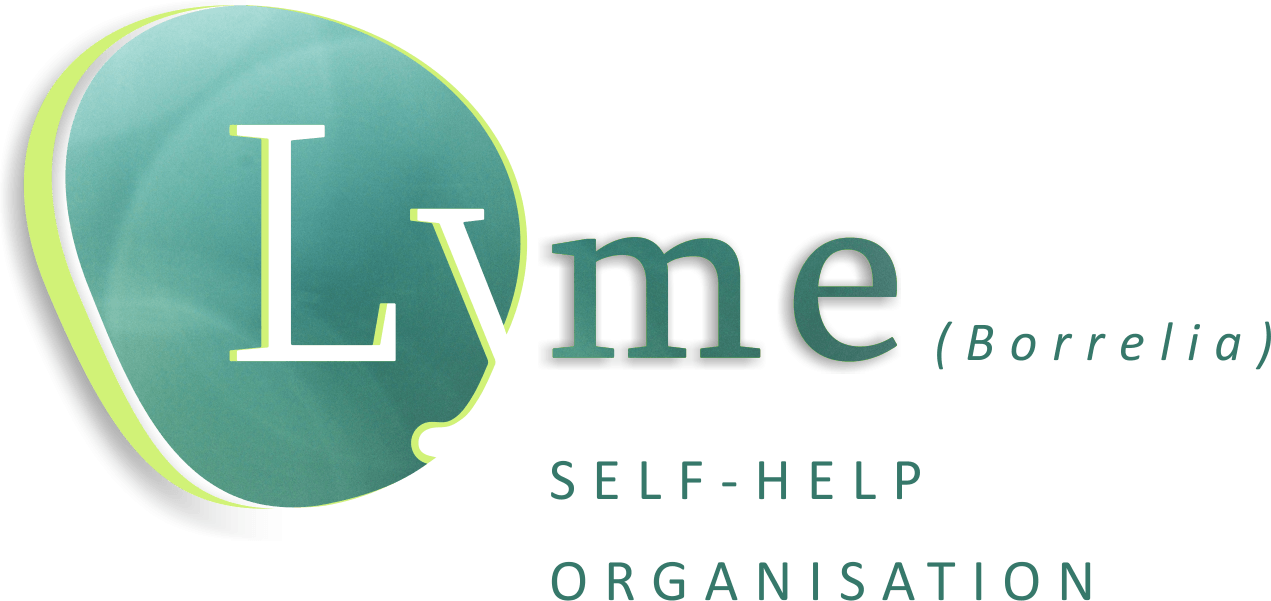News item
Abandoned and brought down again
Last Saturday I got the first messages: "Tes, you will be on TV tomorrow night !?" "Uhhh ... well no, not that I know ...?" “Yes, with the Monitor program! I saw your photo with the article from De Telegraaf pass by in the pre-announcement ”. Aha… okay… At that point I already know enough and I have such a suspicion how the program will be structured.
A few weeks ago I was contacted by telephone by a journalist from the Monitor. Recently they received a lot of e-mails from people with Lyme who complained about things they encounter; among other things, ambiguity regarding testing and misunderstanding from doctors. The program makers were in the research phase and were examining whether there was enough material to make a program. The idea, I was told, was to create a program from the Lyme patient's point of view and if I wanted to answer a few questions. Of course I wanted to! Even gladly! I was super excited, a program for the Lyme patient, great! You don't see those programs passing by, so how great that there would finally be a broadcast from which it is illuminated from a different angle! I thought.
I who couldn't tell me what I had. I described that tests conducted in the Netherlands never showed that I had Lyme until I ended up at the Oosteinde Walborg clinic. Unfortunately Hoffman, who died too early, had my blood tested in Germany and after a 10-year search I finally got a diagnosis: Lyme disease. I talked about the antibiotics I have had, first pills and finally an antibiotic drip a few years later, twice a week for five months. I informed the journalist that this was not successful and that I remained deadly ill. How did I get rid of my complaints?explained my personal story to the journalist and told, among other things, that I have been sick for 17 years, about all the physical complaints I had and that I ended up doing nothing and was sitting on the couch all day. I was talking about the incomprehension in the area and about the 25 doctors and therapists I visited who couldn't tell me what I had. I described that tests conducted in the Netherlands never showed that I had Lyme until I ended up at the Oosteinde Walborg clinic. Unfortunately Hoffman, who died too early, had my blood tested in Germany and after a 10-year search I finally got a diagnosis: Lyme disease. I talked about the antibiotics I have had, first pills and finally an antibiotic drip a few years later, twice a week for five months. I informed the journalist that this was not successful and that I remained deadly ill. How did I get rid of my complaints?
Through a friend I was informed about resonance and photon treatments and I decided to take the gamble. This turned out to be the right treatment for me and after a year I was free of complaints. I said that I have lived a wonderful life for almost five years in which I can do everything again and wow, how happy she was for me! If they used anything from me in the program, she would let me know. The weeks had passed and I had heard nothing more, so I assumed that if they broadcast it, I would not be able to see it. Nothing was further from the truth
On Sunday evening I sit in front of the tube and earlier than I like it I see myself passing by at the beginning of the program. The presenter stands at a bulletin board with all kinds of articles on it. This sign hangs in the waiting room at the Walborg Clinic of Dr. Kingma and on that bulletin board is an article of mine with a photo. The literal text of the presenter reads when I am in the picture: "They are seeking refuge in the alternative circuit and then dubious methods are lurking."
Through a friend I was informed about resonance and photon treatments and I decided to take the gamble. This turned out to be the right treatment for me and after a year I was free of complaints. I said that I have lived a wonderful life for almost five years in which I can do everything again and wow, how happy she was for me! If they used anything from me in the program, she would let me know. The weeks had passed and I had heard nothing more, so I assumed that if they broadcast it, I would not be able to see it. Nothing was further from the truth
On Sunday evening I sit in front of the tube and earlier than I like it I see myself passing by at the beginning of the program. The presenter stands at a bulletin board with all kinds of articles on it. This sign hangs in the waiting room at the Walborg Clinic of Dr. Kingma and on that bulletin board is an article of mine with a photo. The literal text of the presenter reads when I am in the picture: "They are seeking refuge in the alternative circuit and then dubious methods are lurking."
Amazement. Anger. Incomprehension. Offended. Used.
I will not put on paper just a few words that went through me at that moment, the swear words that went through my head. You can't mean this !!! Not again!! Not another program that wants to destroy the alternative. So I have told my success story to someone who now portrays me without my knowledge.
I have been publicly dismissed in front of television-watching Netherlands as someone who has come up with dubious treatments. After so many years of being ill, I had to dive into the alternative corner because the doctors couldn't help me. And then I, someone who has done everything for years to find out what was wrong with her and once she knew how to get rid of it, is put away like this. I struck with great amazement how I was portrayed.
I have been publicly dismissed in front of television-watching Netherlands as someone who has come up with dubious treatments. After so many years of being ill, I had to dive into the alternative corner because the doctors couldn't help me. And then I, someone who has done everything for years to find out what was wrong with her and once she knew how to get rid of it, is put away like this. I struck with great amazement how I was portrayed.
So nothing has changed, the patient is still not taken seriously. The research question was: How can the Lyme patient best be helped? If you, as program makers, really want to answer that question, let people speak who feel better by any treatment method. Then you offer the current patient the various options available.
In my opinion, it comes across that the regular doctors in the broadcast are only concerned with science and do not put the patient first. As a doctor, shouldn't you be there for the patient and not just for science? What is the point of serving science if science does not serve the patient, who does it serve? Who will benefit from this? Not the patient because they are not helped. Why are they so busy keeping that science so high and forgetting the patient? What or who do they serve then? Why was the program created if the patient has not been helped and the patient is put in a bad light? If regular doctors do nothing, then the patient is forced to look for it in the alternative?
The relevant article "Tobben door Teek" was published 2 years ago in De Telegraaf and is about my "success story". Curious as I am, I wanted to know the reason why the article is in the waiting room. A call to the clinic was easily made and that same afternoon a call appointment with Dr. Kingma was a fact. Accessible and friendly as he is, he told me that he wants to inform people with Lyme in the broadest sense of the word, for the benefit of the patient.
Fortunately, I now know for myself which treatment methods have and have not worked. Do I want to tell people with Lyme what to do with my story? No absolutely not. The important thing is that people with Lyme are still not heard and seen. Not by their environment, not by the physicians, nor by program makers. If one thing was very clear, this episode proved it.
For all those people with Lyme, persistents that you are: from the bottom of my heart I wish you a lot of strength and positive thoughts
In my opinion, it comes across that the regular doctors in the broadcast are only concerned with science and do not put the patient first. As a doctor, shouldn't you be there for the patient and not just for science? What is the point of serving science if science does not serve the patient, who does it serve? Who will benefit from this? Not the patient because they are not helped. Why are they so busy keeping that science so high and forgetting the patient? What or who do they serve then? Why was the program created if the patient has not been helped and the patient is put in a bad light? If regular doctors do nothing, then the patient is forced to look for it in the alternative?
The relevant article "Tobben door Teek" was published 2 years ago in De Telegraaf and is about my "success story". Curious as I am, I wanted to know the reason why the article is in the waiting room. A call to the clinic was easily made and that same afternoon a call appointment with Dr. Kingma was a fact. Accessible and friendly as he is, he told me that he wants to inform people with Lyme in the broadest sense of the word, for the benefit of the patient.
The past week I have considered and weighed, will I write this blog or not? During the week it became increasingly clear to me that I wanted to hear from me. The Lyme patients with whom I have contact came with a huge storm of criticism, both on the program itself and the way I was portrayed. The Lyme patients feel put away as attention seekers and are hurt. I congratulate the program makers and the doctors for their good health. It is nice for them that they can easily think about this matter. If you are as sick as many Lyme patients are, you would not think in scientific terms but only think: what can make me even better?
For all those people with Lyme, persistents that you are: from the bottom of my heart I wish you a lot of strength and positive thoughts



